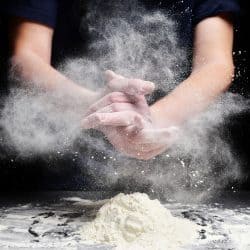Flour is an ingredient that tends to stick around in the pantry long after it's purchased. Keeping flour in the pantry for a long time can expose it to pests and the risk of mold. You may be wondering if storing your flour in the freezer is a good alternative to leaving it at room temperature. In fact, based on our research, the reasons why freezing your flour can be a smart move go beyond increasing its shelf life.
You can safely store flour in the freezer to keep it fresh and usable for longer. Storing flour in the freezer will extend its lifespan for at least twice as long. Cold temperatures keep its natural oils from going rancid, and the dark freezer keeps light from oxidizing the flour. Store your flour in an airtight container to further lengthen its shelf life.
There are more benefits to freezing your flour than just extending its usability. There are also other ways to help keep light, heat, and oxygen from making your flour go bad. We've compiled a useful list of tips and resources to help you keep your flour fresh for as long as possible, so read on to learn more.

How Long Will Flour Keep In The Freezer?
Different types of flour spoil at different rates, but a freezer will increase the lifespan of all of them. Expect your standard all-purpose flour to keep for two years when frozen versus eight months in the pantry. Whole wheat flour can stick around for a full year in the freezer, but only for a few months in your pantry. Since whole wheat flour has a short shelf life due to higher oil content, it should always be frozen to keep it from oxidizing.
Refined flour will last longer than other flours simply because there is less oil to oxidize. That means whole wheat flour is an ideal candidate for storing in the freezer.
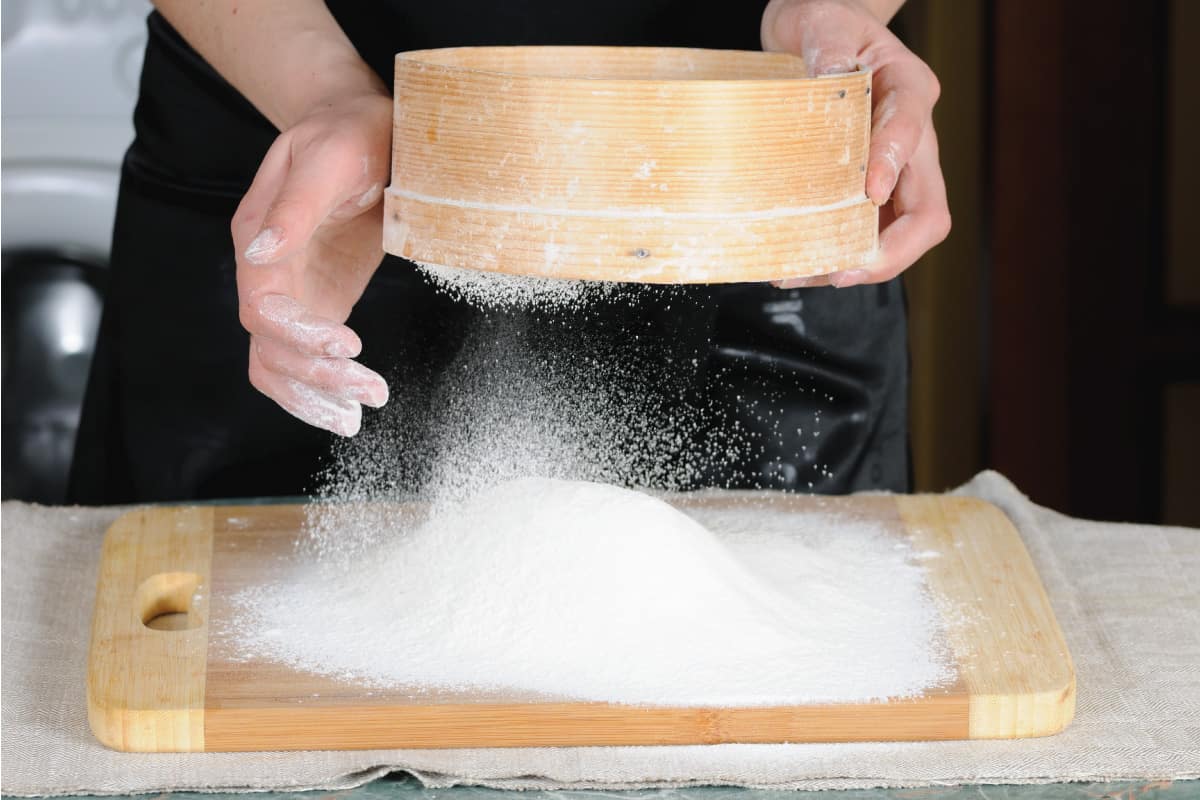
Can Flour Get Freezer Burn?
It is possible for flour to get freezer burn if stored for a very long time. That's due to a process called sublimation: when food is frozen, the water within crystallizes and is drawn to the surface. This moisture loss doesn't occur until the food has been in the freezer for an extended period of time, but the eventual result is freezer burn. Freezer burn won't make your food unsafe for consumption, but it will affect the flavor and texture of your food.
Help prevent freezer burn by keeping your freezer at 0°F so food freezers quicker, and package the flour as tightly as possible to minimize oxygen exposure. Airtight packaging is a must-have for storing flour. Avoid opening your freezer when it isn't necessary since this will keep temperature fluctuations to a minimum.
Does Freezing Flour Affect Baking?
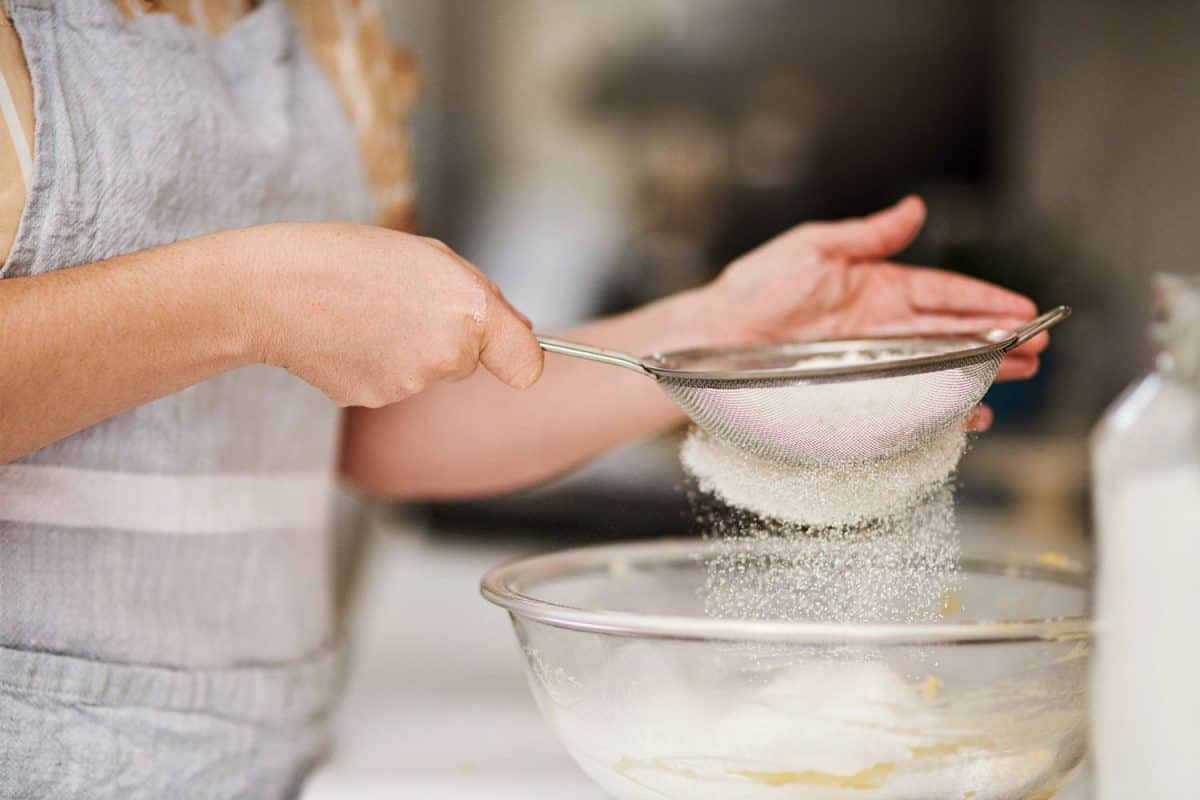
Using cold flour can prevent your baked goods from rising. Your baking will not be affected by freezing your flour as long as you allow it to thaw before use. Some bakers like to use frozen flour when making pie crusts, but you should let it reach room temperature before use in all other cases.
Thaw frozen flour for about an hour before using it for baking. You can speed up the process by laying a thin layer of flour on a baking sheet. This will help it reach room temperature faster than thawing it clumped up or in a pile.
It's best to keep your flour frozen and only thaw as much as you plan to use within a few weeks or months. Repeatedly thawing and refreezing flour can cause it to absorb additional moisture. This can affect the texture of the flour and attract pests.
If you're having problems with pests in your pantry, check out this article where we show you some crucial tips on "How To Get Rid Of Pantry Bugs Naturally."
What Is The Best Way To Store Flour Long Term?
Flour should be kept in an airtight container and frozen if it's going to be stored long term. Even if it's going to be used in a month or two, newly-purchased flour should be frozen for at least four days before use. This will kill any insect eggs inside it.
You may want to keep a small amount of room temperature flour in an airtight container on your kitchen counter. This can be refilled from the frozen batch as needed. Take a look at a good option for flour storage, these extra tall airtight containers by Chef's Path Store.
Click here to see it on Amazon.
It can be easy to forget how long flour has been stored. Whether you're using a vacuum sealed bag, an airtight storage container, or just putting the bag of flour in the freezer, be sure to label your flour with the date it was stored. This will help you keep track of how close it's getting to expiration.
Can You Vacuum Seal Flour?
Flour can be vacuum sealed to increase its shelf life. However, you should avoid pouring the flour directly into the vacuum sealing bag. That's because the vacuum sealer may suck in flour particles once it's activated, which can damage the machine.
You may wish to vacuum seal the entire bag of flour instead, though this may only be possible with large vacuum sealer machines or small bags of flour. You can instead transfer flour to a zipping plastic storage bag, then poke small holes in the bottom of that bag. Place the zipped bag into the vacuum sealing bag with the holes facing away from the open end, then vacuum seal it. This will keep the powder from being sucked into the machine while removing air from the flour.
Check out a highly-reviewed vacuum sealer machine; click here to see it on Amazon.
Can You Bake With Expired Flour?
As long as you don't bake with flour that has grown mold, you should not experience any negative health effects from cooking with expired flour. However, your baked goods may acquire an unappetizing flavor if the flour has expired. Even if mold is present in your flour, you may not have an easy time finding it, and your only clue may be an unpleasant odor. Therefore, if your flour has a noticeably off smell to it, your safest bet is to discard it.
Keep in mind that self-rising flour contains baking powder mixed into it. If self-rising flour has expired, the baking powder will not be as effective. Using expired self-rising flour may prevent your baked goods from rising.
The Final Word
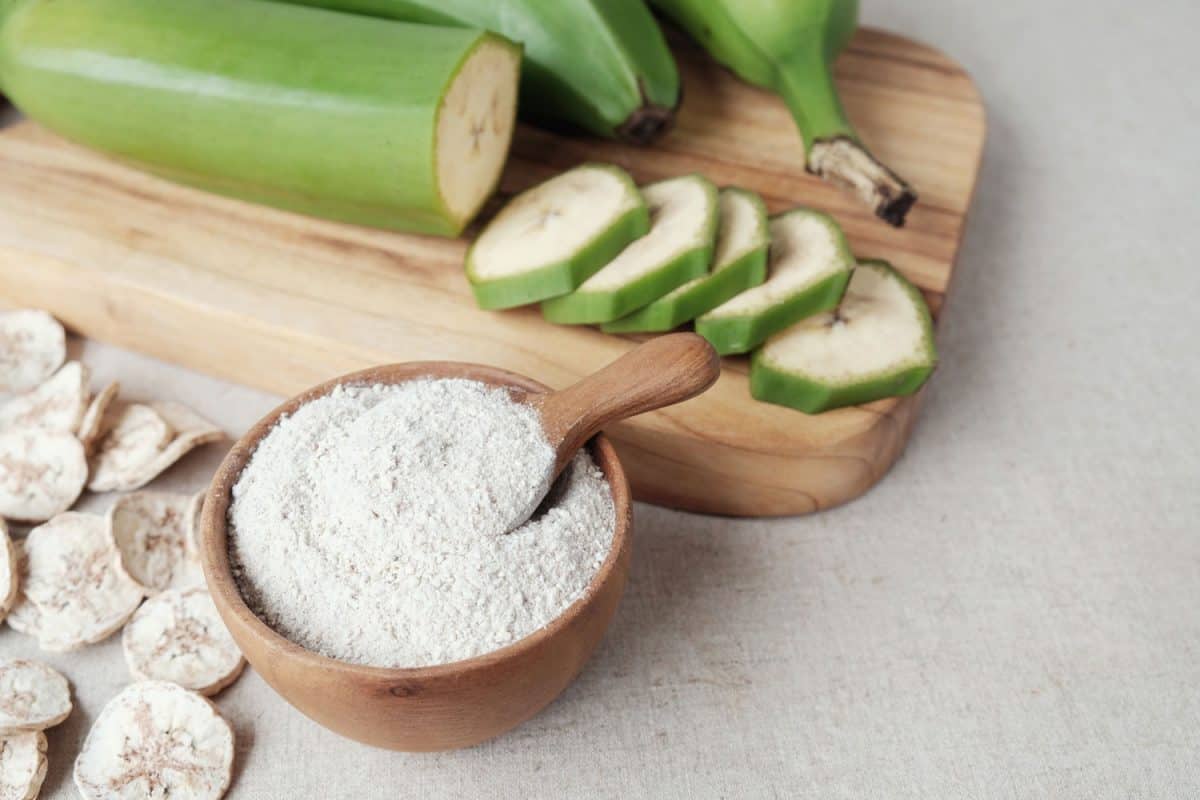
Freezing flour is a wise choice for storing it long-term. Keeping heat, light, and air away from flour will keep it fresh for longer. Your freezer is the ideal way to do so. Airtight containers, including vacuum-sealed bags, are your best choice for storing flour whether on the counter, in your pantry, or in the freezer.
Looking for some useful and attractive options for storing your flour? Check out this article where we answer the question, "What Is The Best Container To Store Flour?"




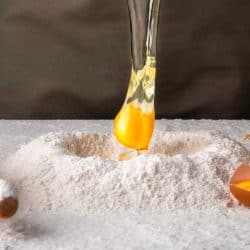
![A glass jar with flour inside it properly arranged on a divider, What Is The Best Container To Store Flour? [7 Suggestions]](https://kitchenseer.com/wp-content/uploads/2020/07/Glass-jar-with-flour-inside-it-properly-arranged-on-a-divider-250x250.jpg)

